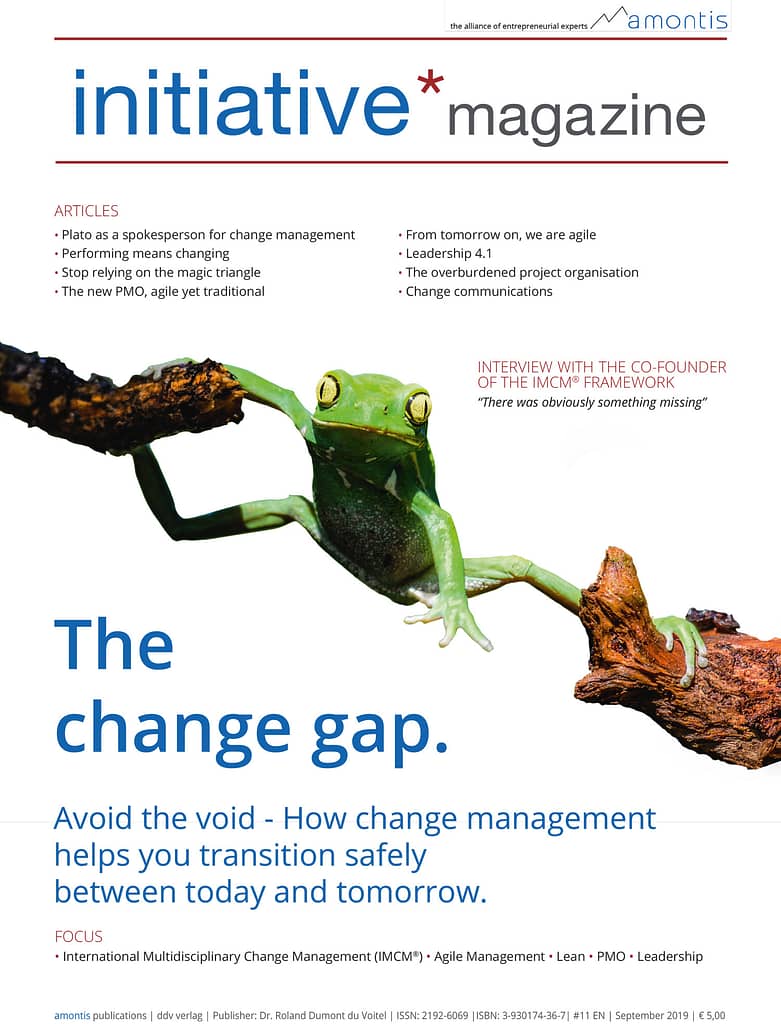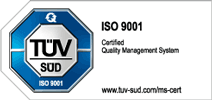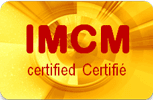„The change gap“ focuses on changes and how to deal with it efficiently and professionally. It gathers key insights from different fields to give a broad overview of effective change management strategies. It also presents the IMCM® (International Multidisciplinary Change Management) framework and gives concrete pieces of advice for its applications.
To receive your free copy of our initiative*magazine #11 (English Edition), just fill-in the form below. It will unlock a link to download a PDF version of the magazine. If you prefer to receive a hard copy of this edition, just read further. This issue is also available in German and in French.

For those who prefer to rather read on paper than on a screen, you can order a hard-copy of our initiative*magazine directly online. We will mail it to you as fast as we can!
Change is omnipresent. Change is hard. Change means uncertainty – about how life is going to be after the change but also about whether anything will change after all. Is the change going to last or is everything to fall back into its old place once the dust settles? And what happens if there is no change? Is the organisation or my workplace going to survive in these disruptive times?
Change is heavily and sometimes even frantically discussed. Interestingly, the discussion usually focuses on the future state after the change. It is discussed whether or not “agile” is the right form of management. What the digital business model should look like. What needs to be done to further promote the use of the “eCar” and so on. This is obviously one of the first steps when it comes to thinking about a change but shouldn’t be the only one.
A lot less attention is given to the change process itself. While it is important to think about the future state, it is possibly even more important to think about how to stabilise the current state for the transition and how to design a transition that doesn’t destroy the organisation’s current values and offerings before the new value and offer is created. We call this the change gap.
The change gap is a threat to any organisation and many firms are approaching it rather quickly. It comes along with hypes and media-driven promotions of better futures. It is fantastic to see that there are people who are getting excited about change and who can see benefits in the desired future state. It becomes a threat, however, if the excitement leads to too much creative destruction and if the current situation, products, way of operating and managing are bluntly perceived as “bad” or “old fashioned” and the new and desired state is euphorically seen as the cure to all the current problems. Innovations are needed but they first take time, effort and money before they realise a return. The current product or service may be subject to improvement and even replacement but, at this point in time, it generates the income. The same applies to processes and structures. They may be the wrong routines but at this point in time, they are the ones that are wellknown, well-trained and also the fastest.
This needs to be taken into consideration when it comes to designing a change process and managing a change. Organisational changes are multifaceted, multidimensional and multidisciplinary. They have their own life cycle that needs to be in tune with the operations of today and lead over to the ones of the future. This magazine is dedicated to this approach.
Happy reading!
Arlette Dumont du Voitel
Editor-in-chief

IMCM® stands for International Multidisciplinary Change Management. It is a comprehensive framework for successful and holistic change management based on in-depth theoretical works as well as best practices from real cases.
You are an expert in your field and you enjoy writting? You would like to share your ideas with other experts and potential customers? Just contact us so we can talk about how you could be featured in one of our initiative*magazines our in our blog!







© 2019-2020 amontis consulting ag. All rights reserved. | amontis
